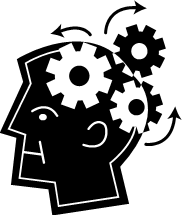I’d like to expand on a blog post from earlier this year by Larry Richman called What is a Wiki? As Larry explains, the nature of a wiki is to enable just about anyone to contribute an article or modify content. If you didn’t realize this and want to see how it works, try this fun game I saw demonstrated by Joel Dehlin. Sign up for a Wikipedia account, then go to the Wikipedia article on Joseph Smith. Change his birth year from 1805 to 1905, then watch and wait. Within 10 or 15 minutes, someone will change it back to the correct year.
This community contribution nature of Wikipedia comes as a surprise to many people who think of Wikipedia as a completely accurate, unbiased, online encyclopedia. The fact is, though, that like most history books and newspapers, biases, political slants, and inaccuracies tend to creep in to Wikipedia articles. I’m not trying to be critical of Wikipedia; just putting out a warning to take what you read with a grain of salt and perhaps consider contributing to Wikipedia articles yourself. I echo Larry Richman’s comments in his post Keeping Wikipedia Entries Accurate, and encourage individuals to review Wikipedia entries about the Church for accuracy and edit and update them as you are able.
To Wikipedia’s credit, a Nature magazine investigation found that Wikipedia comes close to the Encyclopedia Britannica in terms of the accuracy of its science entries. Nature says that science entries in the online encyclopedia are “not markedly less accurate” than those found in the Encyclopedia Britannica. But unlike the Encyclopedia Britannica, Wikipedia is completely free to use and was written by an army of volunteer contributors and not paid professionals.  Clay Shirky, an NYU professor with expertise in social networks, refers to the time people have to contribute to the likes of Wikipedia as our “cognitive surplus.”
Clay Shirky, an NYU professor with expertise in social networks, refers to the time people have to contribute to the likes of Wikipedia as our “cognitive surplus.”
Mr. Shirky tells of a conversation he had with a television executive. He mentioned to her of the back and forth battle on Wikipedia about whether or not Pluto is a “planet.” To which she responded asking where people find the time to contribute to editing articles on Wikipedia. That’s when Mr. Shirky snapped and went into a very informative tirade in which he explained that the entire Wikipedia Web site represents about 100 million hours of human thought/work, while humans watch over 200 billion hours of TV a year. Put another way, you could create 2,000 Wikipedia projects in just one year with the time people spend watching TV. Here’s the video of Clay Shirky’s talk where he tells this story:[youtube]http://www.youtube.com/watch?v=AyoNHIl-QLQ[/youtube]
This cognitive surplus has really got me thinking and I hope it has for you as well. If I would turn off the TV, what more good could I accomplish? Could I spend more time with my family? Could I better magnify my Church calling? Could I share my time, talents, and values and strengthen my community? D&C 58:27 “Verily I say, men should be anxiously engaged in a good cause, and do many things of their own free will, and bring to pass much righteousness.”


The problem with Wikipedia’s articles on the Church is that anti-LDS critics tend to “camp out” and immediately reverse changes that make them more favorable or more neutral. This problem currently plagues the article on Joseph Smith.
This is one reason why FAIR started its own wiki to deal with criticisms of the Church: http://en.fairmormon.org